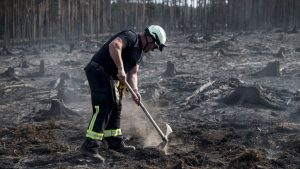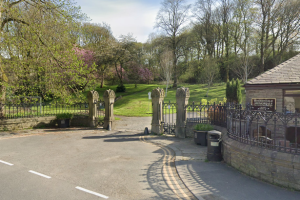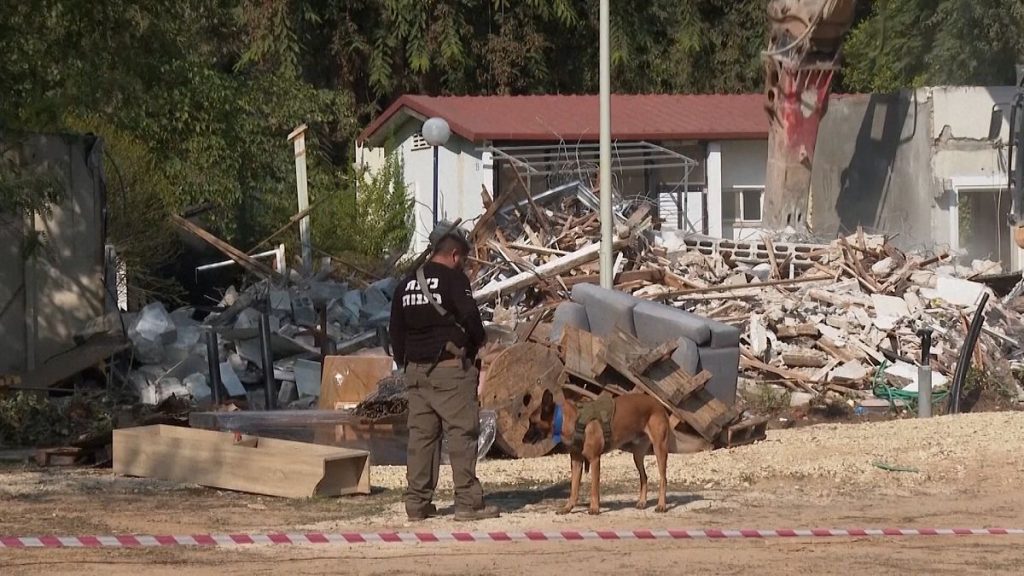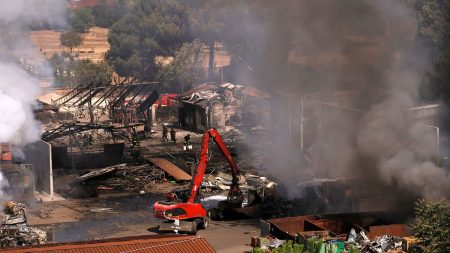On October 7, 2023, Hamas launched a surprise attack on Israel, causing significant destruction and loss of life, particularly in communities near the Gaza Strip. One of the affected areas was Kibbutz Ein Hasholsha, which endured severe damage due to the assault. Over a year later, on April 12, 2024, the kibbutz community took a critical step in their recovery by initiating the demolition of houses that were severely impacted by the attack. This decision to tear down these structures symbolizes not only the damage endured but also the inhabitants’ resilience in wanting to rebuild and move forward from the traumatic events.
The destruction left in the wake of the attack impacted not only the physical landscape but also the emotional and psychological state of the kibbutz’s residents. Many families had lost their homes, memories, and sense of security, forcing them to confront the challenges of rebuilding their lives amidst grief and trauma. The demolitions mark a significant transition from mourning to hope, as community members express a desire to lay the foundations for new homes, fostering a sense of renewal and optimism for the future. This transformative process highlights the dual themes of loss and resilience that have characterized the community’s journey since the attack.
As the demolition of damaged homes begins, the kibbutz’s residents are eager to envision new living spaces that not only serve as shelter but also promote a sense of community, safety, and continuity. This rebuilding effort aims to reflect the collective spirit of the kibbutz, allowing the community to design spaces that honor their shared history while incorporating modern amenities and architectural possibilities. The new homes will be constructed with attention to sustainability and functionality, catering to the needs of a community that is committed to thriving in the face of adversity.
Support from various sectors, including governmental and non-governmental organizations, plays a crucial role in facilitating the rebuilding process. As construction begins, residents are receiving assistance in the form of resources and funding aimed at restoring their community. These efforts underscore the broader societal commitment to supporting those affected by the violence and seeking to rebuild not only the physical structures but also social ties that may have been strained. The kibbutz’s experience reflects a larger narrative within Israeli society, where rebuilding efforts extend beyond mere construction, acting as a form of healing and solidarity among the affected populations.
Additionally, the psychological impact of the attack and the subsequent rebuilding efforts brings attention to the importance of mental health support in recovery. Many residents may carry lingering trauma from the events of October 7, necessitating comprehensive mental health services to help individuals cope with their experiences and facilitate the healing process. Community-driven initiatives emphasizing psychological wellness are essential to ensure that residents can effectively navigate their grief, foster resilience, and create a supportive environment as they rebuild their lives.
Ultimately, the demolition of houses in Kibbutz Ein Hasholsha serves as a powerful reminder of the ongoing struggle for healing and renewal in the aftermath of violence. As residents look towards the future, the physical act of rebuilding their homes symbolizes a collective determination to overcome adversity and reclaim their lives. This moment in time reflects not just the loss but also the hopes and dreams of the community for a safer, more unified existence, where the scars of the past can give way to the possibilities of a brighter future. The kibbutz stands as a testament to the enduring spirit of resilience that can emerge even in the darkest of times.














